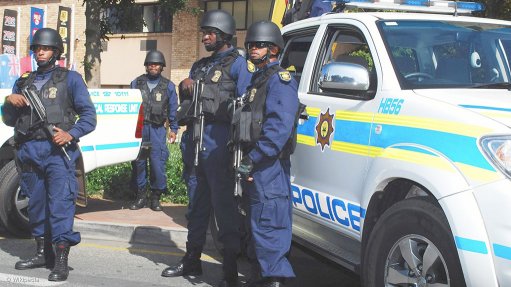
Not enough police have been deployed to hotspots around the country ahead of the local government elections, Parliament heard on Tuesday.
Briefing the police committee in Parliament, Lieutenant General Fannie Masemola told MPs that police had to respond from as far as Johannesburg after violent protests broke out in Hammanskraal on Monday. Protests broke out in the area after residents had their shacks demolished following the issuing of a court order for their eviction.
Protesters blocked roads with burning tyres and rocks. Several vehicles were also burnt and stones and petrol bombs were thrown at security personnel. Two people who, according to reports were employed by a company contracted to the Tshwane Metro, were killed.
Masemola said they had not had any intelligence before the protests and violence flared up.
He also told Parliament that personnel they had deployed in hotspots around the country were already stretched, he said.
These hotspots included Vuwani in Limpopo and the Glebelands Hostel in Umlazi.
Police deployed until August
A number of schools were recently burnt and vandalised in Vuwani as residents protested the demarcation process in the area, while an African National Congress councillor was shot and killed at the Glebelands Hostel in April.
Masemola said they were aware that areas such as Vuwani and the Glebelands Hostel would remain hotspots until the local government elections.
He said police were going to be deployed to these hotspots until August 2016.
"We are focusing on the current hotspots [Vuwani and Glebelands] but also looking at which areas might become problematic. Our personnel right now [are] quite stretched, but we are in negotiations to get more," he said.
Masemola said there was a detective task team of 28 members currently working on cases in Vuwani.
Other hotspots included Grabouw in the Western Cape, and Fort Hare University in the Eastern Cape.